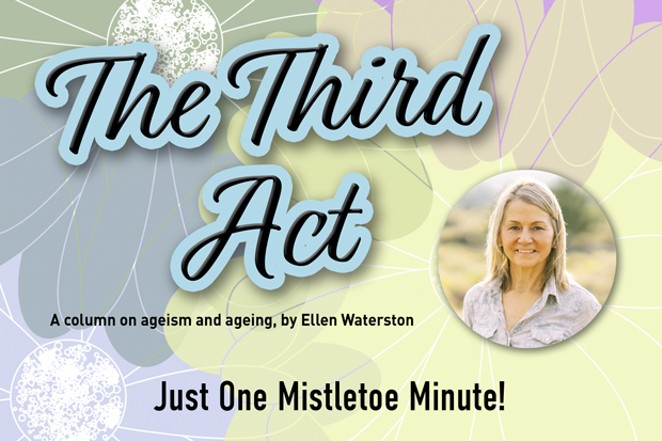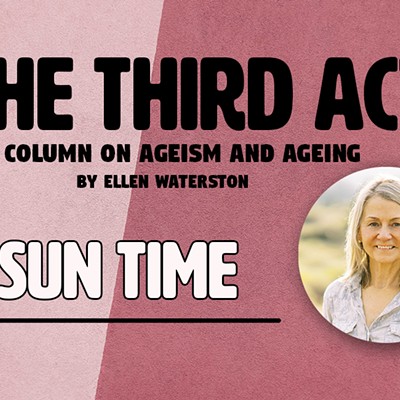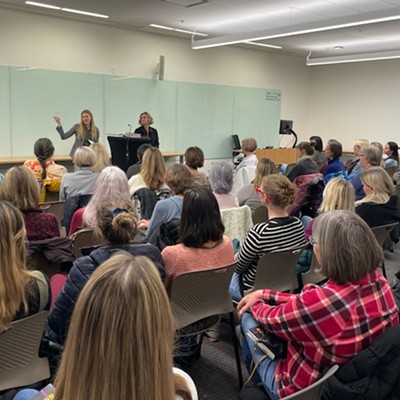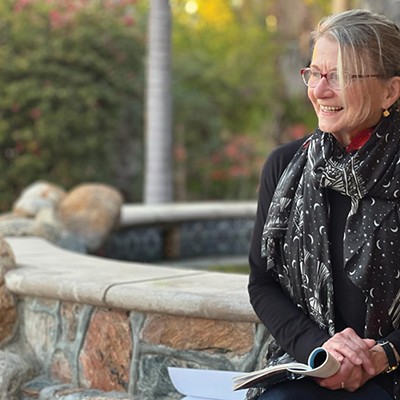I'm a soft touch when it comes to the finals of any team competition. Good luck picking what to watch over the holidays! Christmas Day—all about the NBA. Boxing Day is devoted to that other kind of football. Don't forget the New Year's Six! Whichever sport, it doesn't take a rocket scientist to know players stand a better chance of winning if they function as a team. Armed with the written rules of the game as well as the unwritten ones of good sportsmanship, the job of creating and sustaining a winning team falls to the coach.
Speaking of teams and coaches, call me a dreamer, but here's my holiday wish: that for just one mistletoe minute everyone in the United States imagines themselves as members of one team. Playing different positions, sure, but part of one Team USA, a team that plays by the Constitutional rules and collaborates on sea-to-shining-sea solutions that address challenging sea-to-shining-sea problems. And as for coaches—until the 1980s every high school had a dedicated coach to teach these team concepts, to lay the foundations of all-for-one. That would be the civics teacher. He/she taught not just politics and government but also the responsibilities of being a citizen, the importance of community service, of giving back. Assignments might include attending a city council or school board meeting or writing letters to the editor. Civics taught the importance of a don't-quit attitude of problem solving coupled with a passion for serving others, of taking one for the team, as Will Nunn of Culver, Oregon underscored in his November Bulletin guest column, a must read.
Civics is on life support in this country. Recent surveys show civics instruction, if it exists at all, is at best a half-year requirement. In 2016 not one state included experiential learning in its civics curriculum; instead, only the thin gruel of memorizing political and government organizational structures.
Currently, the closest thing in Oregon is the Kid Governor Program for fifth graders, originally created in Connecticut and adopted in 2017 by then Oregon Secretary of State Dennis Richardson. Subsequent Secretaries of State, Bev Clarno and now newly elected Shemia Fagan, renewed the commitment. (Congratulations to Oregon's 2022 Kid Governor Emerie Martin of Pleasant Hill!). Nonprofits, such as the Classroom Law Project or YMCA's Youth in Government, help fill the civics gap, but these programs often have a cost attached and are chiefly available in urban areas. The good news is, after numerous legislative attempts to reinstate civics, the 2021 Oregon legislature passed the Civics Education Act requiring one semester of civics to graduate from high school, effective 2025. Rep. Paul Evans, D-Monmouth, who has worked to pass civics requirements for Oregon students since 2014, celebrated the bill's passage "...this landmark bill will give the next generations of Oregonians the knowledge and tools they need to lead," he said on KVAL.
In 2016 the Annenberg Public Policy Center found only one-quarter of Americans could name all three branches of government, never mind the purpose of the Bill of Rights. Wouldn't you agree there's a direct correlation between the lack of high school civics and why we Americans are increasingly unaware of the basic functions of our government; between the lack of civics education and why we Americans are cannibalizing our own home team, veering away from all-for-one to a house divided? Whether a sports team or a nation, we know how that story ends and it's not pretty.
Boomerdom spans from 1946 until 1964, with Boomers accounting for roughly 22% of the current population. Plenty served in the military. And plenty served in other ways such as in the Peace Corps or Vista, the domestic version at the time and now one of the AmeriCorps programs. I was in college during the Vietnam War when students called for an overhaul of the Selective Service Act to make approved forms of civilian service count as a legitimate alternative to military service. In many countries some national service, either civilian or military, is required. Maybe it's an idea whose time has come, a way to realize commitment to country, to learn and practice critically important civics lessons.
"Thank you for your service," the ticket agent says to veterans or those currently serving in the military. What if, when the attendant called for those who have served to board their flight early, we all could stand up? What if all of us were eligible for the Veterans Day parade...floats proclaiming affiliation to both military and civilian service? So OK, maybe more than one wish: that civics be reinstated in high schools everywhere, military and civilian service to country be recognized and, in the meantime, we all do our level best to be team players. Call me a dreamer.
—Poet and author Ellen Waterston is a woman of a certain age who resides in Bend. "The Third Act" is a series of columns on ageing and ageism.























